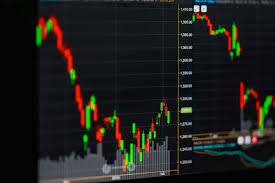
The Ultimate Guide to Forex Exchange Trading
Forex exchange trading offers a dynamic and exciting opportunity to participate in the financial markets. As one of the largest and most liquid markets in the world, it attracts traders from all walks of life—ranging from retail investors to large institutions. This article will delve into the essentials of forex trading, helping you navigate through its complexities. For more information and tools, you can visit forex exchange trading trading-terminal.com.
Understanding Forex Trading
The foreign exchange market, or forex, is where currencies are traded. It operates 24 hours a day, five days a week, across major financial centers worldwide. The forex market is decentralized, meaning there is no central exchange for currency trading; instead, it is conducted over-the-counter (OTC) through a network of banks, brokers, and individual traders.
How Forex Trading Works
At its core, forex trading involves buying one currency while simultaneously selling another. Currencies are traded in pairs, such as EUR/USD (Euro/US Dollar), which indicates how much of the second currency (USD) is needed to purchase one unit of the first currency (EUR). Traders aim to profit from changes in exchange rates.
Currency Pairs
Currency pairs are categorized into three main types: major pairs, minor pairs, and exotic pairs. Major pairs include the most traded currencies, like the US dollar, euro, and Japanese yen. Minor pairs do not involve the USD and include currencies like EUR/GBP or AUD/NZD. Exotic pairs involve a major currency and one from a developing economy, such as USD/TRY (US Dollar/Turkish Lira).
Pips and Spreads
A “pip” is the smallest price movement in a currency pair, typically the fourth decimal place (0.0001). The “spread” is the difference between the bid price (the price at which you can sell) and the ask price (the price at which you can buy). Understanding pips and spreads is crucial for calculating potential profits and losses in forex trading.
Getting Started with Forex Trading
To begin trading forex, you’ll need to follow a series of steps:
- Educate Yourself: Understand the basics of forex trading, including terms, strategies, and market analysis.
- Choose a Broker: Select a reliable forex broker that offers a trading platform that meets your needs.
- Open a Trading Account: Create a live or demo trading account to start practicing and eventually execute real trades.
- Develop a Trading Strategy: Create a plan that outlines your goals, risk tolerance, and trading approach.
- Start Trading: Begin executing trades while continuously monitoring the market and adjusting your strategy as necessary.
Types of Forex Analysis
Successful traders rely on various types of analysis to make informed trading decisions. The primary methods include:
1. Fundamental Analysis
This approach involves analyzing economic indicators, events, and news that affect currency values. Factors such as interest rates, inflation, GDP, and employment data play a significant role in determining the strength of a currency.
2. Technical Analysis

Technical analysis focuses on price trends and patterns using charts and indicators. Traders utilize tools like moving averages, trend lines, and oscillators to predict future price movements based on historical data.
3. Sentiment Analysis
This approach gauges the overall mood of the market, determining whether traders are bullish (optimistic) or bearish (pessimistic) about a currency pair. Sentiment can often influence short-term price movements.
Common Forex Trading Strategies
There are various trading strategies used by forex traders to maximize profits. Here are some popular ones:
1. Day Trading
Day traders buy and sell currencies within the same trading day, closing all positions by the end of the day to avoid overnight risks. They rely heavily on technical analysis to execute quick trades based on small price movements.
2. Swing Trading
Swing trading involves taking advantage of short- to medium-term market moves. Swing traders typically hold their positions for several days or weeks, using a combination of technical and fundamental analysis to identify potential entry and exit points.
3. Position Trading
Position trading adopts a long-term perspective, with traders holding positions for weeks, months, or even years. This strategy is based on fundamental analysis and macroeconomic trends rather than short-term price fluctuations.
Risk Management in Forex Trading
Effective risk management is essential for long-term success in forex trading. Consider these practices:
- Set Stop-Loss Orders: These are automatic sell orders set to limit potential losses on a trade.
- Use Proper Position Sizing: Determine the appropriate amount of capital to risk on each trade based on your overall account balance.
- Diversify Your Portfolio: Avoid putting all your capital into a single trade or currency pair to spread risk.
- Keep Emotions in Check: Stick to your trading plan and avoid making impulsive decisions based on emotions.
The Future of Forex Trading
As technology advances, the forex market continues to evolve. The growing popularity of algorithmic trading and automated systems has transformed how traders operate. Moreover, the emergence of cryptocurrency trading has added another layer of complexity and opportunity within the financial landscape.
Conclusion
Forex exchange trading can be rewarding and challenging simultaneously. By educating yourself, developing a solid trading strategy, and implementing effective risk management techniques, you can enhance your chances of success. Remember, continuous learning and practice are keys to becoming a proficient trader in this dynamic market. Whether you are just starting or looking to refine your skills, the forex market offers endless possibilities for those willing to invest their time and effort.


